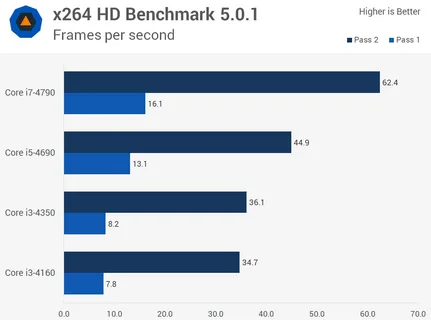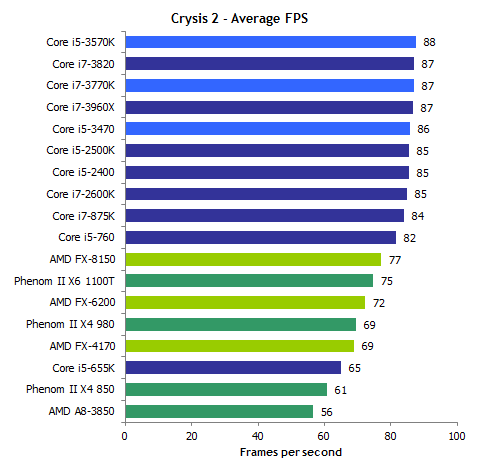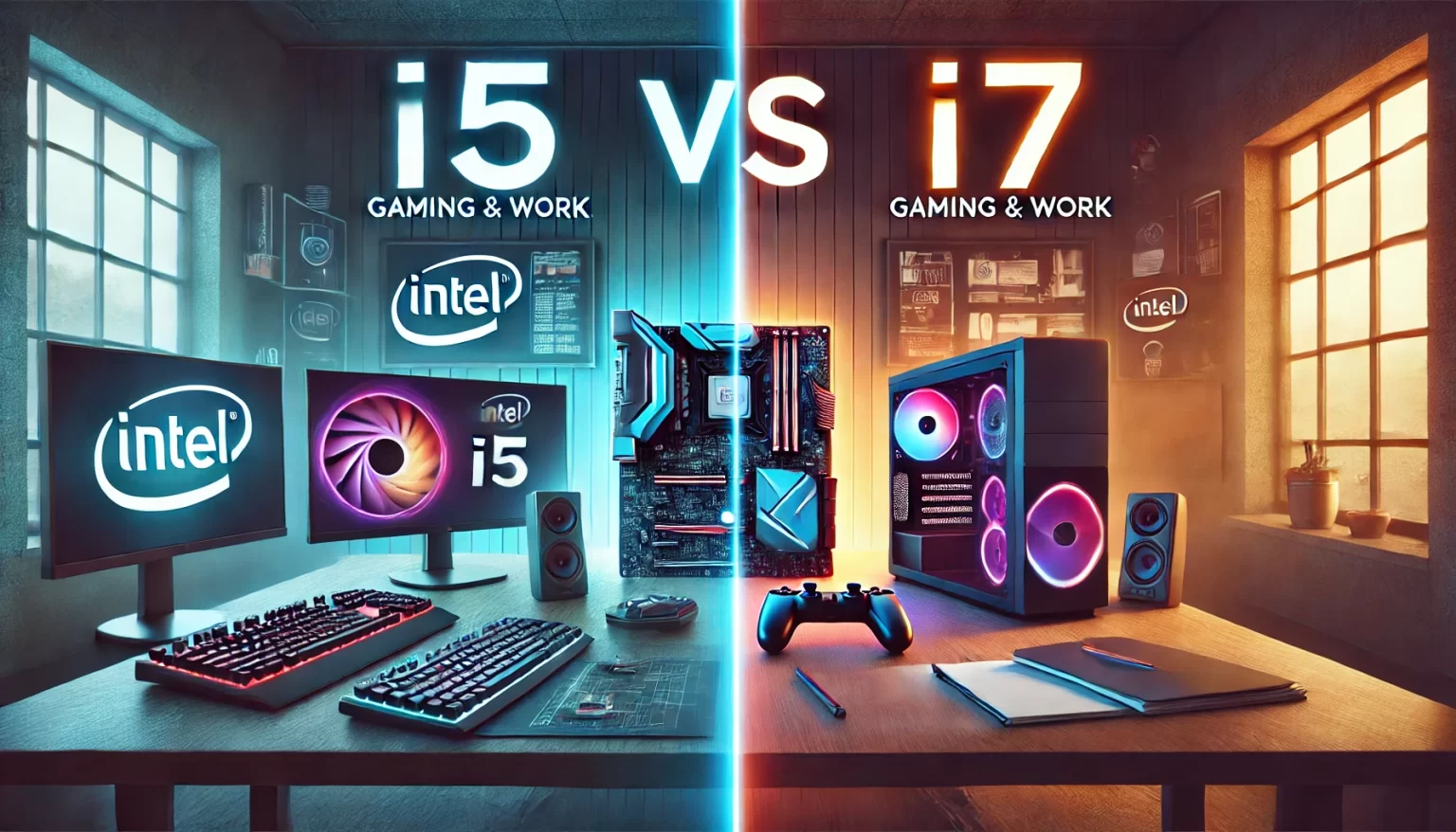Choosing the right processor can feel daunting. Among the many options available, the debate between i5 vs i7 has always been significant, especially for those aiming to optimize their gaming and work performance. Both processors, part of Intel’s Core series, are powerful but serve slightly different purposes. Understanding their strengths and limitations will help you decide which one better fits your needs.
The Problem: Balancing Performance and Price
Whether you’re a gamer, a professional, or someone in between, the processor dictates how smoothly your system runs. But not all processors fit every need. The i5 vs i7 debate often boils down to balancing performance and cost. You may miss out on multitasking or high-end gaming if you go too low. It is too high, and you might overspend on features you won’t fully utilize.
Agitating the Dilemma: Performance Bottlenecks and Overkill
For gamers, lag, stutters, and crashes are nightmares, often resulting from a mismatched CPU. Similarly, professionals need seamless multitasking when running software like Photoshop or coding environments. While an Intel Core i5 may seem adequate for budget-conscious users, would an i7 be overkill? Or, on the contrary, is opting for an i5 limiting your possibilities? Let’s dive into the specifics.

Breaking Down the Differences
Gaming: i5 vs i7 in Action
Gaming demands fast cores and high clock speeds. Modern Intel Core i5 processors have stepped up significantly, offering up to 10 cores in some models like the 13th-gen line up. These handle most games at high settings without breaking a sweat. Pair it with a decent GPU, and you’re set for titles like Call of Duty or Elden Ring.
An i7, on the other hand, is built for gamers who want peak performance in every situation. Its hyper-threading technology and higher cache provide faster processing in CPU-intensive scenarios, such as high-refresh-rate gaming or open-world titles like Cyberpunk 2077. If your priority is hitting 144fps on ultra settings, the i7 might edge ahead.
Work: Multitasking and Productivity
When it comes to productivity tasks like video editing, coding, or running multiple virtual machines, the i7 shines. With more cores and threads, it can handle demanding workflows like rendering 4K footage or compiling code faster. For professionals, every second counts, making the additional cost of the i7 worth it.
However, the i5 is no slouch. Many of its models—especially the 12th and 13th-gen processors—can tackle most office tasks, presentations, and occasional heavy work without noticeable lag. If you’re primarily working in spreadsheets, document editing, or light photo retouching, the i5 offers fantastic value.
Benchmarking: X1 Carbon i5 vs i7
For those considering the Lenovo X1 Carbon, the choice between the X1 Carbon i5 vs i7 boils down to workload. The Intel Core i5 variant excels in battery life and cost-efficiency. Meanwhile, the i7 model provides raw power for professionals handling intensive tasks.
When tested on benchmark tools like Cinebench, the i5-3570 vs i7-6700HQ comparison highlights the leap in performance. The i7-6700HQ offers higher multi-core performance and is better suited for creators. Yet, the i5-3570 still competes in single-core tasks, showing its strength in games and more straightforward applications.

Understanding Core and Thread Dynamics
The number of cores and threads significantly affects performance. Intel Core i5 processors typically come with 4-6 cores in earlier generations, while modern variants boast up to 14 cores with Intel’s hybrid architecture. These cores handle gaming and work well every day.
The i7 takes it further, often featuring 8-16 cores and up to 24 threads in higher models. These are ideal for multitasking, whether you’re streaming gameplay, editing, or running simulations. For instance, in the Intel Core i3 vs. i5 debate, the i5 wins for multitasking due to its extra cores. The same principle applies to the i5 vs. i7.
Gaming Longevity and Future-Proofing
Modern games increasingly utilize multiple cores. Opting for an i7 ensures you’re prepared for future titles. On the other hand, the i5, while powerful, may require upgrades sooner in the gaming lifecycle, especially with demanding games on the horizon.
Take note of the GPU pairing, too. An i7 paired with a high-end graphics card like the RTX 3050 Ti ensures smooth 4K gaming. However, with an i5, you might face bottlenecks in some scenarios, though mid-range GPUs like the GTX 1660 remain compatible.

Power Efficiency: The Hidden Champion
The Intel Core i5 models are known for their energy efficiency. They draw less power, translating to better battery life and lower heat generation in laptops. This makes them perfect for lightweight work laptops like the X1 Carbon i5 variant.
However, if power isn’t a concern, the i7’s higher TDP (Thermal Design Power) provides the edge in raw performance. This is especially evident in desktop setups where battery life isn’t a factor.
Price vs. Performance: The Final Call
For most users, the Intel Core i5 is the sweet spot. It delivers excellent performance without stretching your budget. Casual gamers and office workers will find it more than sufficient.
While pricier, the i7 offers unmatched performance for heavy multitaskers, professionals, and competitive gamers. It’s an investment, but it’s worth every penny for those who demand top-tier performance.
FAQs
1. Which is better for gaming, the i5 or i7?
The i5 works great for gaming at standard settings. The i7 is superior for ultra settings and competitive gaming.
2. Is an i7 worth the extra cost?
Yes, for multitasking, video editing, and future-proofing. But for casual tasks, stick to an i5.
3. How does the X1 Carbon i5 vs i7 compare?
The X1 Carbon i5 is efficient and affordable. The i7 is faster but consumes more power.
4. Can I use an i5 processor for work?
Absolutely. It’s perfect for light to moderate workloads, such as office tasks and some creative work.
5. What about the Intel Core i3 vs i5?
The i5 beats the i3 in multitasking, gaming, and handling heavier applications.
Conclusion: Deciding Your Best Fit
Ultimately, the choice between i5 vs i7 depends on your specific needs. For everyday tasks, casual gaming, and moderate workloads, the Intel Core i5 perfectly balances performance and cost. However, if you’re looking for uncompromising speed, multitasking, and future-proofing, the i7 is your go-to. Think about your long-term goals and workload before deciding.


